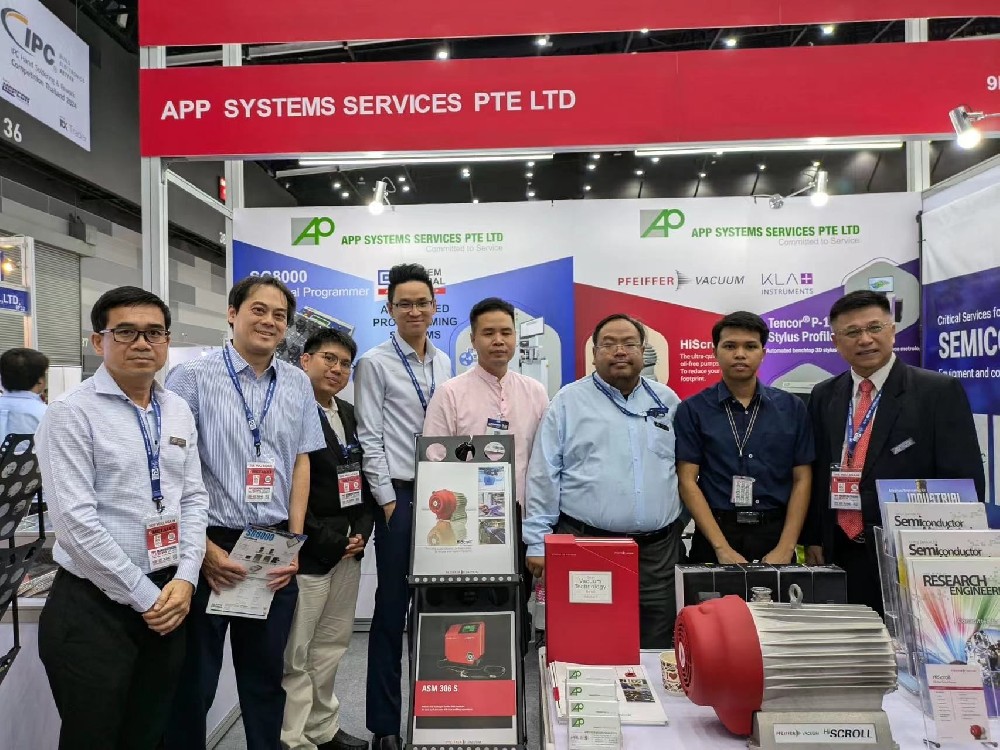

2025-09-30

2025-06-24

2025-06-13

2024-08-05

2024-06-25

2024-03-12
Address: 3F , Blg 7 West, Sinosteel Building,Maque Industry Village Nanshan,Shenzhen,518057,Guangdong
Phone: +86-755-26971006
Mobile: 13751075276
Email: sales@acroview.com
NO.1
Puyuan Jingdian: Self-developed chip technology to launch a new "Centaurus" chipset
On July 18, Puyuan Jingdian Technology Co., Ltd., an electronic measuring instrument manufacturer, officially held the 2022 summer new product launch conference. At the press conference, the company launched a new "Centaurus" chipset, and officially released five new heavyweight new products, including HDO1000/HDO4000 series high-resolution digital oscilloscopes, DSG5000 series microwave signal generators, and DP900/DP2000 series programmable linear DC power supplies. .
NO.2
The domestic "broadband coaxial probe" was successfully developed: the core components of chip testing broke the foreign monopoly
On July 19, according to the Ninth Research Institute of China Electronics Technology Group Corporation, recently, the Ninth Research Institute released the latest research results of the core component of semiconductor integrated circuit testing - broadband coaxial probe. According to reports, the "broadband coaxial probe" is used in chip process model testing, process monitoring and finished product testing, throughout the entire chip manufacturing process. Before the semiconductor chip is packaged, it must undergo a probe test to check whether the quality of the semiconductor chip meets the standard. , so as to eliminate bad products and improve chip reliability.
NO.3
Weilai Capital Qiming Venture Capital led the investment, and the general smart chip company Jinxin Technology completed the Pre-A round of financing
On July 19th, the general smart chip company Jixin Technology announced the completion of the Pre-A round of financing. This round of financing was jointly led by Weilai Capital and Qiming Venture Capital, BAI Capital, Cornerstone Capital, Zhongke Chuangxing, Harvest Investment, Yuanhe Puhua and Yunjiu Capital joined the investment. This core technology has completed three rounds of angel financing since February this year. Investment institutions include Lenovo Venture Capital, Qiming Venture Capital, Yunjiu Capital, Shunwei Capital, Yuanhe Puhua and Yunxiu Capital. With this financing, this core technology has completed a total of 100 million US dollars in financing.
NO.4
"Sintech" received nearly 1 billion Series A financing, and its "Dragon Eagle No. 1" smart cockpit chip will achieve mass production in the second half of the year
On July 19, it was reported that Hubei Sinking Technology Co., Ltd. (hereinafter referred to as: Sinking Technology), a provider of 7-nanometer automotive-grade high-end processors, successfully completed its Series A financing of nearly one billion yuan. The financing funds are planned to be used for the mass supply of existing products and the next stage of research and development and deployment of automotive-grade high-computing power in-vehicle chips.
NO.5
Chip shortage Toyota's global production in August reduced by 20% EV production line shutdown for 1 month
According to news on July 20, due to the spread of the epidemic and the shortage of parts such as chips, Toyota, the leader in the Japanese auto industry, continued to reduce production in August, and global production will be reduced by 20%. Among them, the electric vehicle (EV) production line in Japan will be suspended for one month. Toyota Motor announced on the 19th that global production in August 2022 is expected to be around 700,000 units, of which about 200,000 in Japan and 500,000 overseas. Compared with the production plan of about 850,000 units notified to suppliers at the beginning of the year, it is about 150,000 units less. Toyota said that the global monthly average production during the period from August to October 2022 is estimated to be about 850,000 units, with a total output of about 2.55 million units, while the production target for this year, from April 2022 to March 2023, remains at the previously announced approximately 9.7 million units. Station unchanged.
NO.6
GF CEO: New York chip factory construction may be delayed if U.S. subsidy bill fails to pass
On July 20, GlobalFoundries chief executive Tom Caulfield said that if a bill to support the U.S. computer chip industry doesn't pass in the next few weeks, the company plans to open a new facility in upstate New York. Construction of a chip factory will likely be delayed. The U.S. Senate passed the CHIPS Act for America last summer, which allows the U.S. government to provide $52 billion in funding to subsidize U.S. computer chip manufacturing and research. The bill would provide funds to companies including Intel, Samsung Electronics, TSMC and GlobalFoundries to build chip factories in the United States.
NO.7
South Korea plans to train 150,000 semiconductor engineers in the next 10 years
According to news on July 20, at the end of May this year, South Korean media reported that South Korea’s chip manufacturing industry will face the challenge of talent shortage. Samsung Electronics and SK Hynix, two major domestic chip manufacturers in South Korea, also proposed that South Korea take various measures. , and increase the training of relevant talents. The latest reports from South Korean media show that the relevant South Korean departments announced on Tuesday local time that they plan to train 150,000 semiconductor-related engineers in the next 10 years. South Korean media said in the report that South Korea's move is intended to solve the problem of insufficient semiconductor talents, provide sufficient talent support for the development of the semiconductor industry, and form a virtuous circle of human resource development and the development of the semiconductor industry.
NO.8
The U.S. government asked South Korea to reply by the end of August whether to join the "chip quadrilateral alliance", the Ministry of Commerce responded
On the afternoon of July 21, the Ministry of Commerce held a regular press conference. At the meeting, there were media questions: It was reported recently that the U.S. government is asking South Korea to reply before the end of August whether to join the “Quartet Alliance of Chips” led by the U.S.; South Korea said that Discussions are ongoing with the United States on ways to strengthen cooperation in chip manufacturing. What is the MOFCOM's comment on this development, and how does it view the possible impact of the alliance on China's semiconductor industry? In this regard, Ministry of Commerce spokesperson Shu Jueting said that the stability of the industrial chain and supply chain is a global issue that is currently highly concerned by all parties. China believes that no matter what the framework arrangement is, it should be inclusive and open rather than discriminatory and exclusive; it should promote the stability of the global industrial chain and supply chain, rather than damage and fragment the global market. Under the current situation, strengthening the openness and cooperation of industrial and supply chains to prevent fragmentation is beneficial to all parties concerned and the whole world.
NO.9
Volkswagen's CARIAD to develop automotive chips with STMicroelectronics
On July 21, Volkswagen Group's software subsidiary CARIAD reached an agreement with STMicroelectronics to jointly develop chips for Volkswagen's next-generation vehicles. The two companies said in a joint statement released Wednesday that the partnership is aimed at new Volkswagen vehicles based on a unified and scalable software platform.
NO.10
The United States accounts for 55.8% of global chip R&D spending, while mainland China only accounts for 3.1%
According to data from IC Insights, a well-known industry body, despite concerns about domestic chip manufacturing in the United States, American companies still account for more than half of the total R&D spending in the global chip industry. Data show that the US chip industry R&D expenditure in 2021 will reach 80.5 billion US dollars, accounting for 55.8% of the world, an increase of 1.4 percentage points compared with 2011 ten years ago. A large part of this comes from Intel Corporation, which will spend as much as $15.2 billion in R&D in 2021, accounting for 18.9% of the industry's R&D spending. Semiconductor companies in the Asia-Pacific region (excluding Japan) - including foundries, fabless chip suppliers and integrated equipment manufacturers, accounted for 29% of chip R&D spending, an increase of 11.5 units compared to ten years ago percentage point. This is followed by European companies with 8%. Next is Japan with 7%.
NO.11
$192 billion! South Korean chip giants want to take advantage of the "Dongfeng from the United States" to lay out chip manufacturing?
On July 22, Samsung will build 11 new chip factories in Texas, the United States, with a total investment of about 192 billion US dollars. Samsung has submitted documents to the Texas government to apply for tax relief. Samsung's investment will receive $4.8 billion in tax deductions, according to Texas' Chapter 313 filing, known as the Property Tax Incentive Program. Currently, Samsung has a chip factory in Austin, Texas. And on November 24 last year, Samsung announced that it would build a new chip factory in Tyler, Texas. The investment, costing $17 billion, is mainly used to produce advanced chips such as high-performance computing, 5G, and artificial intelligence.
NO.12
SK hynix to indefinitely postpone memory chip factory expansion plan
On July 22, South Korean chip maker SK Hynix announced that it will indefinitely postpone the expansion plan of a new memory chip factory with an investment of 3.3 billion US dollars. It is reported that the factory that SK Hynix decided to postpone is the M17 memory chip factory that the company previously decided to build in the Cheongju Park. The factory was originally scheduled to start construction in late 2023 and is expected to be completed as early as 2025. However, the company decided to suspend plans to expand the plant as uncertainty in the global economy is dampening consumers' purchasing power for electronics.
NO.13
Hyundai, ABB and Electrolux executives say chip shortages have eased
On Thursday, July 22, local time, executives at Hyundai Motor, factory robot maker ABB and Swedish refrigerator maker Electrolux said the shortage of semiconductor chips had eased. It is reported that since the second half of 2020, the chip shortage problem has become the main theme of the semiconductor industry, and the problem has had an impact on industries including automobiles, mobile phones, game consoles, and PCs. Chipmakers including Intel, TSMC and Samsung Electronics are investing heavily amid a global shortage of chips and intensifying competition for cutting-edge chips, leading to an increase in chip supply.
NO.14
Infineon launches world's first TPM security chip with post-quantum encryption for firmware updates
On February 21, 2022, quantum computing will have a major impact on cybersecurity, threatening to ensure the confidentiality of encrypted data and the integrity of digital signatures. To address these challenges, Infineon Technologies AG has launched the new OPTIGA™ TPM (Trusted Platform Module) SLB 9672, which is designed to further improve system security. The TPM chip uses a firmware update mechanism based on post-quantum encryption technology (that is, hash-based signature algorithm XMSS), which is a forward-looking security solution.
NO.15
Zhaoyi Innovation GD25WDxxK6 SPI NOR Flash product series came out
On July 22, Zhaoyi Innovation recently announced that it has launched the GD25WDxxK6 SPI NOR Flash product series, which adopts a 1.2mm×1.2mm USON6 ultra-small plastic package with a maximum thickness of only 0.4mm. Further improvements have been achieved in terms of power consumption and voltage range, making it ideal for applications such as consumer electronics, wearables, IoT, and portable health monitoring devices that require stringent battery life and compact design.
NO.16
Guanghetong released AI smart module SCA825-W
On July 22, Guanghetong officially launched the high computing power AI module SCA825-W based on the Qualcomm QCS8250 chip platform. AIoT field. Guanghetong AI module enriches the intelligent module product line, AI performance generates strong potential energy, and has accumulated a lot in the field of digital economy applications.
ACROVIEW Weekly Information
NO.1
Oncor Technology brings the universal programmer AP8000 to the STMicroelectronics 2022 STM32 China Online Technology Week
From July 18th to 22nd, STMicroelectronics held the first and 2022 STM32 China Online Technology Week to celebrate the fifteen years of co-innovation with ecological partners. At the meeting, STMicroelectronics and partners brought more than 30 online seminars, more than 100 video demonstrations of exhibits, and a technical question-and-answer session after the seminar, giving attendees the opportunity to interact with industry experts and engineers on-site. Many industry elites discussed high-reliability technology together to provide directions for future enterprises to achieve precision manufacturing. As a Chinese ecological partner of STM32, Oncor Technology was also invited to participate in the conference, and demonstrated how Oncor AP8000 universal programmer supports the mass production programming of STM32WB55.

Dear, scan to add WeChat as a friend
Online Service
Phone

Top